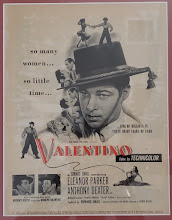Prior to the new one our kitchen table was a hard rock maple dinette set, built sometime in the 1950's, and handed down to us from my wife's parents nearly 28 years ago. They bought it new. We had the chairs refinished eight years ago and then, later, re-glued and tightened. The table served us well and it now resides at my brother-in-law's house, still serving well. We also have another table, recently acquired, that is a hand-me-down from my wife's grand parents. It also was probably built in the 50's, but instead of maple, this one is steel and vinyl and formica. It's Pearly's table. The maple one was Frances' table.
Polishing up Pearly's table the thought occurred to me that we should figure out a way to use it in the upcoming Christmas Eve dinner (as in breakfast, dinner, supper) that we are having at our house. Several people attending will have eaten countless meals at that table and everyone knows what Pearly meant to our family. I always associate Pearly with Christmas, probably because that's when I spent the most time with her. It will be nice to have a remembrance of her as we share our Christmas dinner this year.

One non-Christmas memory is "camping"* at Lake O' The Pines. I have often commented on the fact that the Calhouns (my in-laws) organized their vacations around meals and our "camping" was no exception. No sooner would the breakfast dishes be done than dinner (lunch) would begin to be planned. There was little fuss about the quality or type of food, many meals were ham sandwiches on white bread and fresh sliced tomatoes with salt and pepper, it was more about who was going to be there and when. Getting together was the important part.
All our great celebrations and get togethers involve the sharing of food or meals. Wedding cake. Food for the family after funerals. Birthday cake. Thanksgiving turkey. Black-eyed peas on New Years Day. Fourth of July, Memorial and Labor Day cookouts. Communion.
Speaking of communion, Jesus ate a lot. From the wedding at Cana to the Last Supper, food was an integral part of his ministry. Was that because food is simply an important and frequent part of our common lives, or was it because the nourishment and sacrifice and service to others involved in preparing and sharing a meal is such a fundamental concept in being Christian? Could it be that the 'food theme,' ranging from eating with sinners to feeding the multitude, is meant to help us connect with God? The meaning and use of food in explaining the Christian life is part of a complete, finely crafted mechanism that so attracts me.
In any case, we will be serving beef for Christmas (Eve) dinner (lunch), tenderloin and ribeye, but there is no doubt that the sharing will be more important than the food. Did you know that in Hebrew the word table means 'sending?' We bring people to our table and send them back out, not just with full stomachs, but with a full heart and a desire to do the same for others. The constant, consistent action of sharing and sending, and sharing and sending, adding a leaf to the table when needed to make room for extra family and new friends, acts like a natural force wearing away the hard parts of our selfishness.
 We will be using all of our tables ... Pearly's and Frances' and Cindy's ... even if the actual furniture is not here because mothers teach daughters. The tradition and significance of the table and sending continues. Whether you acknowledge it or not, the preparing and sharing and sending back out into the world is a reciprocal, self perpetuating and holy activity. We share because we can. Others share because we do. The blessing gets passed on and we all become more holy in the process.
We will be using all of our tables ... Pearly's and Frances' and Cindy's ... even if the actual furniture is not here because mothers teach daughters. The tradition and significance of the table and sending continues. Whether you acknowledge it or not, the preparing and sharing and sending back out into the world is a reciprocal, self perpetuating and holy activity. We share because we can. Others share because we do. The blessing gets passed on and we all become more holy in the process.For all you guys out there who got suckered into reading this post simply because of the title, thinking it would be about a Sawzall, my apologies for the religious sidetrack. However, if you'll take this opportunity to tell your wife how "well made" she is, and tell your Mom or Mother-in-Law how much you appreciate their cooking, reading this may still serve a purpose!
* camping is in quotes because sleeping on a mattress in an air conditioned room at a lodge isn't really my idea of camping, even if we did cook outdoors.





